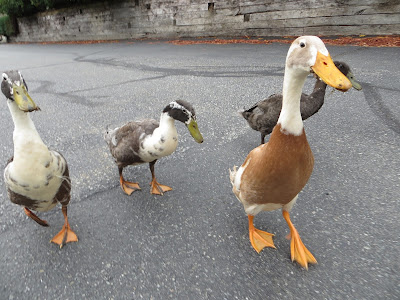Because I am generally in the know, re: Sun activities, when the associate publisher of the magazine, Krista Bremer, published her memoir in 2014, titled My Accidental Jihad, about her passionate relationship with an Islamic Libyan, I was sure I would read it immediately. According to the back of the book, jihad in Islam means "an individual's striving for spiritual and intellectual growth." Yes please! I don't know what happened: a pregnancy? The loss of a furry friend? A fit of common recalcitrance while trolling the links of Amazon? I'm not sure. For whatever reason, I've just completed it now.
Friends, it is beautiful. I probably cried about thirty times reading it, hot, stinging tears that pierced my eyeballs without falling, the kind of sensation that, writing or reading, signals that someone is hot on the trail: of truth, of poignancy, of beauty. I devoured this story about an unlikely partnership and unlikelier marriage that produced two kids and sustains two very different people. I remember some promotional item for the book highlighting the fact that all marriages are a collision of cultures. For Bremer, a native of California, and her husband, a Libyan man who fled his country to escape Gaddafi's regime, the culture collision is inescapable. Bremer writes about it with such honesty, such dignity, such respect for her husband quite a bit older than she is, who at times makes her jaw drop in shock and embarrassment and love, I want to bathe in her prose for years to come and study how it achieves its effects.
In many ways, mothers are anonymous in our culture. Even though I'm a mom myself, when I see a stroller on the streets, I'm just as guilty of glazing over the whole scene, seeing nothing but a boring, fussy stroller and not the dynamic human being who is pushing it. I don't see a woman or a man. I don't even see a baby. I just see generic clothing, skin color and the presence of faces. Unless I catch myself glazing, being an ignoramus, unless I look into those faces with deliberate, open greeting, the magic and stories inside those people escape me.
Parenthood, and motherhood in particular, is just not that sexy to Americans, probably because it requires qualities we don't yet esteem: tenderness, patience, yielding, and oceans of loving, nourishing sacrifice. It requires submission to many things larger than yourself, a concept that has no vocabulary in our national discourse. To succeed as a parent (listen to me! first-time mother to someone under two. forgive my hubris, and here I go anyway) religious training is sometimes more helpful than anything the larger culture might offer, religion with its teachings of acceptance, prayer, and the fruits of asking questions and staying vulnerable.
Not-knowing is not sexy to us yet, and that's okay (I think??). What I like about becoming a mother is how underground my life is now. I am deep in the weeds, slithering daily through work the fruits of which are not yet apparent, sometimes even to me. It's humbling. It's rigorous. It's fun and sexy in ways, too, ways that belong to no one but me. They are invisible to most eyes, therefore pleasures all mine. I love that.
"At the mall, we made a beeline toward the drugstore, where we knew we'd find the essentials we needed. As we passed a jewelry shop, Ismail tugged me spontaneously toward the door. 'You need a ring to wear into the delivery room,' he announced, squeezing my hand.
Throughout my pregnancy I had insisted I didn't care about a ring, but when he pulled me toward the glass countertop and I looked down at row after row of glittering diamonds resting on blue velvet, I knew I had lied to both of us."
That's a tiny excerpt, I know, but if I allow myself to quote more of the book I'm going to want to paste its whole body here.
Also, Samantha is walking now, a skill she's been practicing since July. On the day of the lunar eclipse, she finally decided to unveil her abilities in perfect, assertive glory. She is such a magical combination of things: cautious and determined, athletic and communicative. It doesn't surprise me at all that she waited and waited to let go of our hands and then, when she did, scaled the whole staircase in one go on the same day she finally walked. It's how I operate, too: steady, steady, underground study and then, just at the right time, when I'm sure no one is looking, I pop into new forms.
To your cozy, nurturing days, and all the work that happens out of the limelight, in the woods, steady and secret and essential,
Howling,
Kara





















































